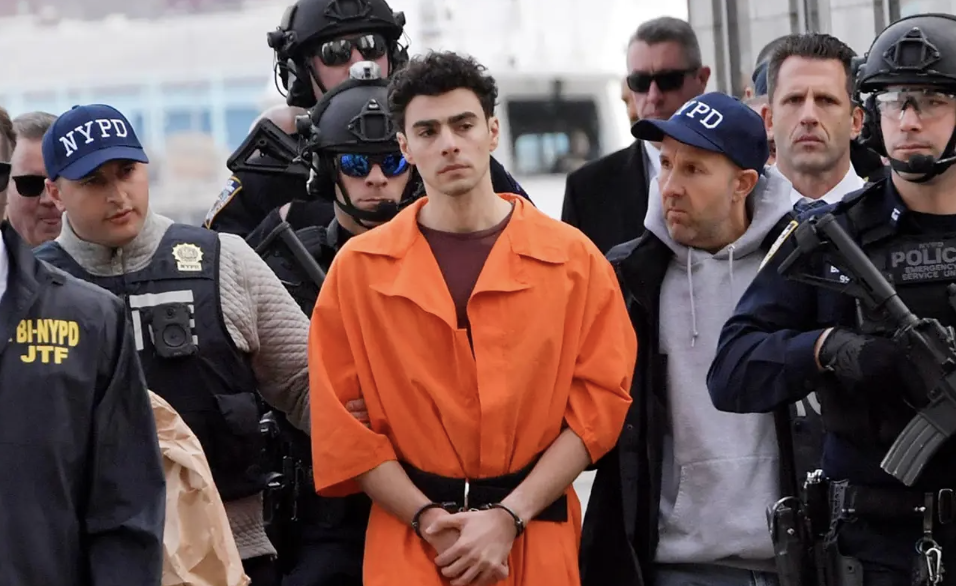Luigi Mangione’s ‘fangirls’ are ‘not me’: Taylor Lorenz attempts to clarify comments about alleged murderer

Image: Getty Images
In recent news, Taylor Lorenz, a notable former journalist known for her insightful commentary on social media and pop culture, stirred significant conversations with her remarks concerning Luigi Mangione, the individual accused of murdering UnitedHealthcare CEO Brian Thompson. Her comments were made during a segment on Fox News alongside host Sean Hannity, where she sought to clarify her position regarding the public’s fascination with Mangione, particularly among certain demographics.
Understanding the Context of Lorenz’s Comments
In the heated exchange, Lorenz emphasized that her intent was not to defend Mangione, but rather to shed light on the curious mindset of his supporters, particularly young women who perceive him through a lens of romanticism. She described these individuals as “fangirls” who gravitate towards Mangione due to an image they construct around him as a “revolutionary” figure. This characterization highlights how some fans view him as an “attractive and morally good man,” separate from the grave implications of his alleged actions.

Image: Getty Images
While Lorenz clarified her stance, acknowledging that she does not personally subscribe to the beliefs of these supporters, she expressed an understanding of their perspective. This complexity reflects a broader societal fascination with individuals who commit heinous acts and the narratives that often develop in their aftermath. Lorenz pointed out that this phenomenon can be driven by societal frustrations, particularly among younger generations grappling with systemic issues.
Bringing Attention to Systemic Failures
Amidst the controversy surrounding Mangione, Lorenz made a significant pivot in the conversation to address the broader problems within the U.S. healthcare system. She articulated how the lack of adequate health insurance contributes to countless deaths each year and labeled this as a form of “violence.” By framing these systemic failures as violence, Lorenz sought to contextualize the public frustration that might lead some individuals to romanticize a figure like Mangione.

Image: Getty Images
Moreover, she expressed that while the actions of Mangione cannot be justified, the anger and despair stemming from the healthcare system could play a role in shaping the narrative surrounding his case. Lorenz’s commentary serves as a reminder that the intertwined relationship between individuals and systemic issues often leads to complex repercussions in society.
The Challenge of Empathy in Violent Situations
During her exchange with Hannity, a notable point of contention arose regarding the need for empathy towards the victims of violence, particularly Brian Thompson, who lost his life in this tragic incident. Hannity urged Lorenz to firmly condemn those who idolize Mangione, stressing that the focus should remain on the victims and the grieving families left in the wake of such violent acts.

Image: Getty Images
In response, Lorenz maintained that the expression of support for Mangione falls within the bounds of free speech. She argued that while these supporters might have misplaced their admiration, their right to express their opinions is important. Her commentary touches on the delicate balance society must maintain between advocating for victims and understanding the psychological underpinnings that lead to the idolization of controversial figures.
The ongoing discourse surrounding Lorenz’s comments reflects a societal struggle to comprehend the multi-faceted narratives that emerge following violent incidents. As discussions continue, it remains essential for society to focus not only on individual cases but also on the systemic changes necessary to prevent such tragedies from occurring in the future.

Image: Getty Images
As for Luigi Mangione, he is facing serious legal consequences, with charges that include murder and the use of a firearm during the commission of a crime. Federal prosecutors are pursuing the death penalty based on the severity of his alleged actions. The case has ignited debates regarding justice, accountability, and the public’s perception of morality in the context of violence.
This incident raises critical questions about public perception and the complex narratives that arise in the wake of violence. By focusing on the societal issues at hand, we can better understand the motivations behind such idolizations and emphasize the need for systemic reform.
If you would like to engage further in discussions around issues like these and the implications they hold for society, consider joining forums that delve into these challenging topics.